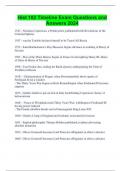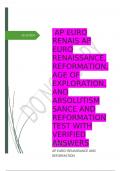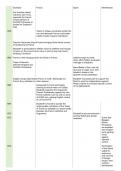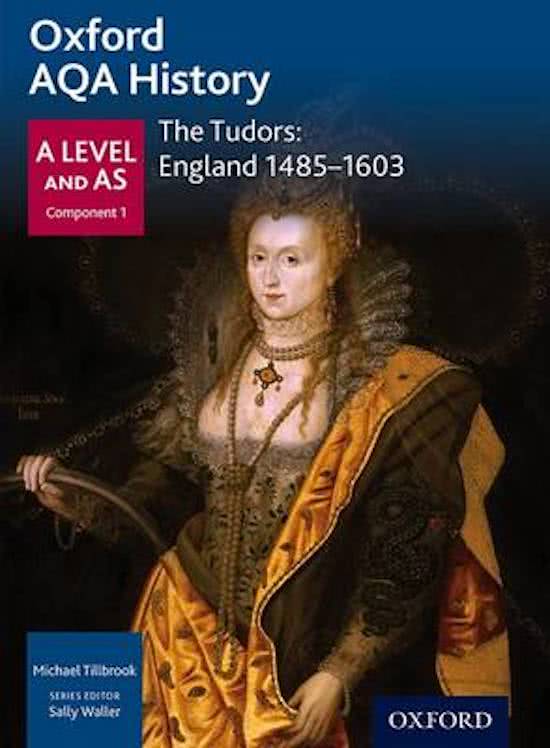Guise dynasty - Study guides, Revision notes & Summaries
Looking for the best study guides, study notes and summaries about Guise dynasty? On this page you'll find 3 study documents about Guise dynasty.
All 3 results
Sort by

-
Hist 102 Timeline Exam Questions and Answers 2024
- Exam (elaborations) • 6 pages • 2024
-
- £10.68
- + learn more
1543 - Nicolaus Copernicus, a Polish priest, publishesOn the Revolutions of the Celestial Spheres 1547 - van the Terrible declares himself to be Tsarof All Russia 1572 - Saint Bartholomew's Day Massacre begins inFrance at wedding of Henry of Navarre 1587 - War of the Three Henrys begins in France involvingKing Henry III, Henry of Guise & Henry of Navarre 1598 - Tsar Feodor dies, ending the Rurik dynasty andbeginning the Time of Troubles in Russia 1618 - - Defenestration of Prague...

-
Ap Euro Renaissance, Reformation, Age of Exploration, and Absolutism
- Exam (elaborations) • 14 pages • 2024
-
- £9.03
- + learn more
Medici Banking Family - answer-Reason why Florence regained banking The family expanded from cloth to commerce to real estate to banking Known to be the greatest bank in Europe with branches all over Three Estates - answer-First estate, second estate, and third estate first estate: clergy who believed people should be guided by spiritual ends second estate: the nobility who believes that nobles provide security and justice third estate: peasants, made up 90% or mass majority Isabelle ...


-
AQA summary timeline of Elizabeth I's foreign policy
- Summary • 2 pages • 2024
- Available in package deal
-
- £7.46
- + learn more
Timeline of Elizabeth I's foreign policy organised by countries of Spain, France, Scotland and the Netherlands between . This includes defending the protestant movements in France, the Netherlands and Scotland; the events leading up and during the war with Spain.

That summary you just bought made someone very happy. Also get paid weekly? Sell your revision notes on Stuvia! Discover all about earning on Stuvia


